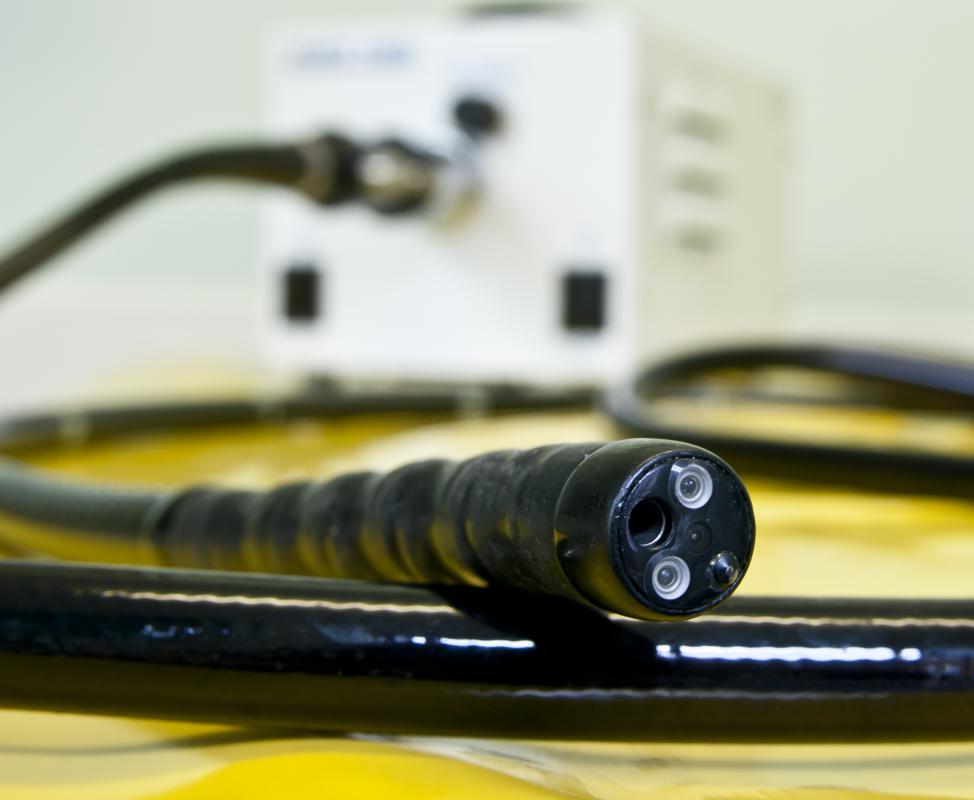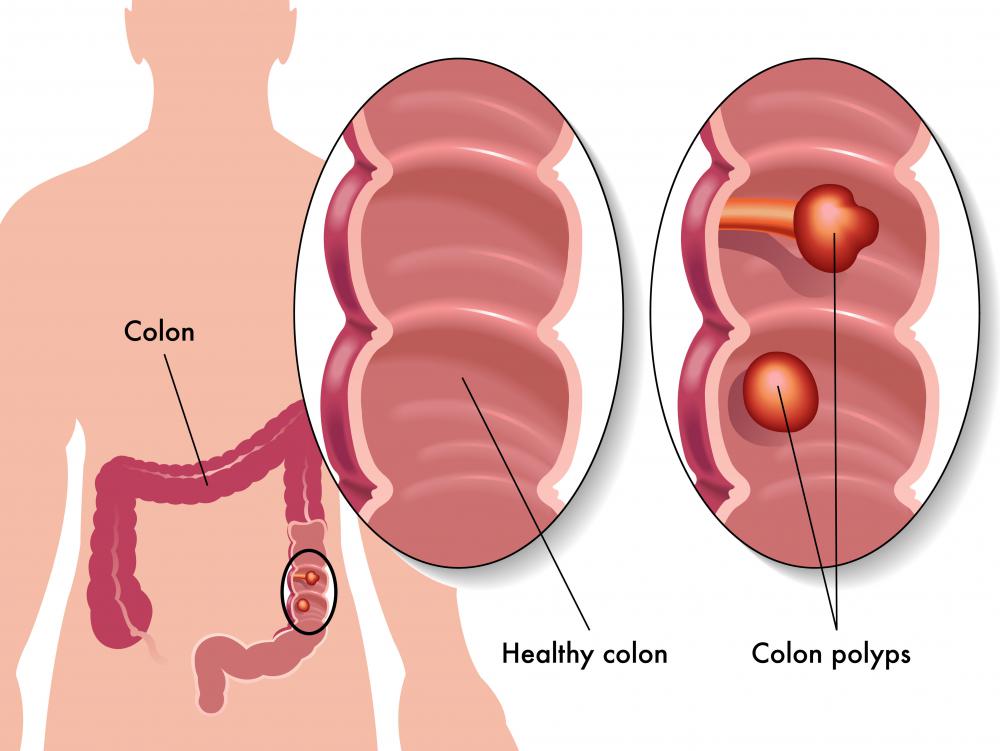At TheHealthBoard, we're committed to delivering accurate, trustworthy information. Our expert-authored content is rigorously fact-checked and sourced from credible authorities. Discover how we uphold the highest standards in providing you with reliable knowledge.
What is a Colon Lesion?
A colon lesion is an abnormal cellular change in the colon, or large intestine. Lesions in this part of the intestine can have a number of causes, and when they are identified, follow-up diagnosis is usually recommended to learn more about the exact nature of the change. Determining the cause of a lesion will help a medical professional develop a treatment plan, if one is necessary. Treatment can involve gastroenterologists, surgeons, pathologists, oncologists, and other medical specialists during the diagnosis and treatment process.
Lesions in the large intestine are usually identified during a colonoscopy, a type of medical test where a camera is inserted into the colon to allow a healthcare professional to view the walls of the colon. They can also be identified during surgery on the colon. Lesions can take the form of polyps, plaques, and a wide variety of other types of growths. When a lesion is spotted, tools can be used to collect a small sample for examination in a laboratory. For safety, the medical professional may attempt to remove the entire lesion, with margins, in case it is malignant. Removing the whole thing when it is first seen will spare the patient a second procedure.

A biopsy sample of a colon lesion can be examined to determine what kinds of cells are involved and to learn if the growth is malignant. A pathologist may recommend screening the patient for additional lesions, depending on the outcome of the biopsy analysis. In some cases, the lesion is benign, and no additional action needs to be taken, although the healthcare professional may advise the patient to get regular colonoscopy screenings, as it is possible for malignant growths to appear after the removal of benign growths.

Commonly, lesions are caused by inflammation in the colon. Inflammation irritates the cells and can interfere with the normal process of cell division and reproduction. It may be caused by a temporary condition like an infection, or by a chronic issue such as Crohn's disease or irritable bowel disease. Patients with a history of gastroenterological problems may be advised to get colonoscopies on a regular basis to check for the development of lesions, and this test is often recommended on a regular basis in older adults over the age of 50 so any problems can be spotted quickly.

Being diagnosed with a colon lesion does not mean that someone has cancer. While it can be frightening to hear that cellular changes are occurring, as many people link cellular changes with cancer, an examination of the cells by a pathologist is necessary to draw any conclusions. After the pathologist has submitted a report, patients can meet with their healthcare providers to discuss the contents of the report and any next steps.
AS FEATURED ON:
AS FEATURED ON:















Discussion Comments
I have regular anal sex with my boyfriend and I have had burst sphincters many times. They just sew it up and I can have anal sex again a couple of months later. I wonder if I should let him be the bottom now as I am concerned about cancer. What do you think?
I had the same thing happen to me, which is caused by muscle spasms. It's totally involuntary. The barium enema is actually not bad at all.
I had a colonscopy and they couldn't get through, so now I need a barium enema. Why?
Post your comments